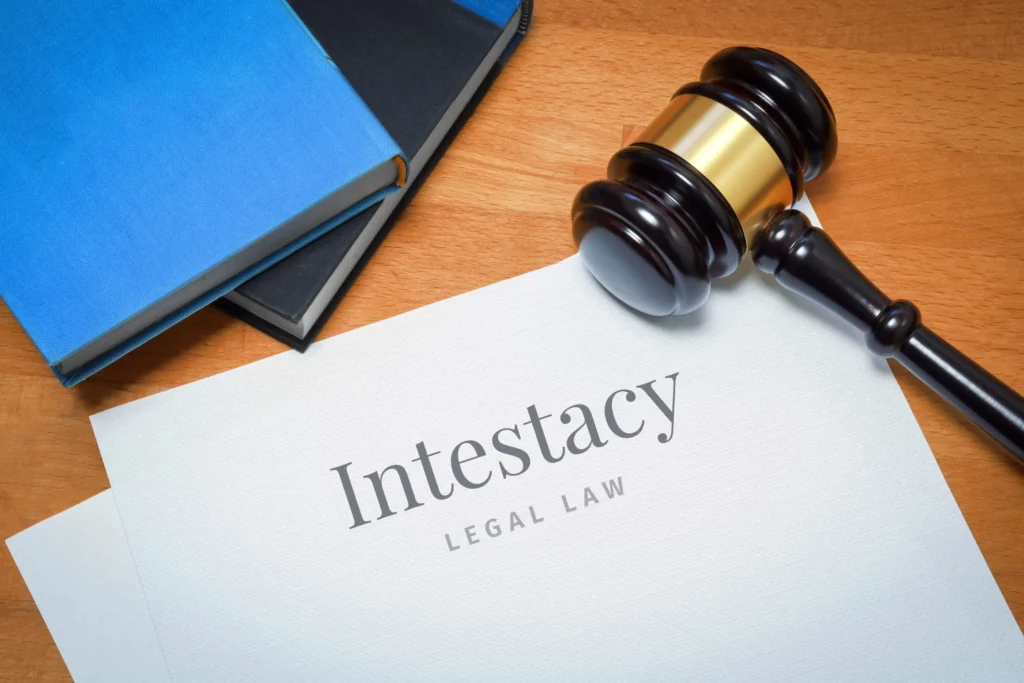Probate is the legal process of settling an estate after someone passes away. If you’re wondering how to file a petition for probate in Texas, you’re not alone many people find the process confusing and overwhelming. Whether there’s a will or not, Texas law requires estates to go through probate to ensure assets are distributed correctly.
In this guide, we’ll break down everything you need to know about the probate process in Texas, from filing the petition to gathering the right documents. Understanding the steps can help you navigate the system with confidence and avoid costly mistakes.

When Is Probate Necessary?
Not every estate needs to go through probate. In Texas, some assets pass directly to heirs without court involvement. However, probate is required if:
- The deceased owned property solely in their name.
- There are debts that need to be paid before assets can be distributed.
- The estate includes significant assets without designated beneficiaries.
- The will is being contested by family members or creditors.
If the estate qualifies for simplified probate options, such as a small estate affidavit or muniment of title, you may be able to avoid a lengthy court process.
Steps to File a Petition for Probate in Texas
Filing for probate involves several legal steps, and missing any of them can result in delays. Here’s how to get started.
1. Determine the Type of Probate
Texas allows different types of probate depending on the estate’s complexity. Choosing the right option is crucial for streamlining the process.
- Independent Administration: If the will allows, this option provides minimal court supervision, making the process faster and less expensive.
- Dependent Administration: Requires court approval for every estate-related decision. This is often necessary when there are disputes among heirs.
- Muniment of Title: If there are no outstanding debts and the only asset requiring probate is real estate, this method allows for a quicker transfer of ownership.
- Small Estate Affidavit: If the estate is valued at $75,000 or less (excluding homestead property), this can be an alternative to full probate.
Consulting a probate attorney can help determine which type applies to your situation.
2. File the Petition for Probate
To initiate probate, you must file a petition in the county where the deceased lived. This petition requests the court to recognize the will (if one exists) and appoint an executor to handle the estate.
The petition must include:
- The deceased’s name, date of death, and last known address.
- A copy of the will (if applicable).
- A list of estate assets and debts.
- Names of heirs and beneficiaries.
- The proposed executor or administrator’s information.
Once filed, the court will schedule a probate hearing to review the petition and confirm the executor.
3. Attend the Probate Hearing
At the hearing, the judge will:
- Determine if the will is valid (if one exists).
- Appoint the executor or administrator.
- Grant Letters Testamentary or Letters of Administration, which give legal authority to manage the estate.
If there is no will, the court will distribute assets according to Texas intestate succession laws, which prioritize spouses, children, and other close relatives.
4. Notify Heirs and Creditors
Once appointed, the executor must notify heirs and creditors about the probate proceedings. This includes:
- Publishing a notice in a local newspaper to alert creditors.
- Sending written notices to known creditors, allowing them to file claims against the estate.
- Informing heirs and beneficiaries about their inheritance.
Creditors have four months to submit claims. If no valid claims are filed, remaining assets can be distributed to heirs.
5. Inventory and Appraise Estate Assets
Texas law requires executors to file an inventory listing all estate assets. This document includes:
- Real estate properties (homes, land, rental properties).
- Bank accounts and investments.
- Personal property (vehicles, jewelry, collectibles).
- Debts and liabilities owed by the estate.
Some assets, such as life insurance policies and retirement accounts with named beneficiaries, typically bypass probate.
If required, the court may appoint an appraiser to assess the value of certain assets.
6. Settle Debts and Taxes
Before distributing assets, the executor must:
- Pay off all debts (medical bills, credit cards, mortgages).
- Handle estate taxes if applicable.
- File the deceased’s final income tax return.
If the estate does not have enough funds to cover debts, the executor may need to sell assets before making distributions.
7. Distribute Remaining Assets to Heirs
Once debts and taxes are settled, the executor distributes the remaining assets according to the will. If no will exists, Texas intestacy laws dictate how assets are divided.
At this stage, the executor must:
- Transfer titles for real estate or vehicles.
- Distribute bank accounts and personal property to heirs.
- Close the estate by filing a final accounting with the court.
After completing these steps, the probate process is officially closed.
Key Documents Needed for Probate
Gathering the necessary documents ahead of time can make the probate process smoother. Without proper documentation, probate courts may delay proceedings, leading to unnecessary stress and expenses. Here’s what you’ll need:
- The Will (if applicable) – The original document or a certified copy must be presented to the court. If a will cannot be located, probate may follow Texas intestate succession laws to determine asset distribution.
- Death Certificate – A certified copy from the Texas Department of State Health Services is required to prove the deceased’s passing. Multiple copies may be needed to submit to different institutions, such as banks and insurance companies.
- Petition for Probate – The formal request to open probate must be properly filed. This document initiates the process and asks the court to appoint an executor or administrator.
- Inventory of Estate Assets – A detailed list of all property, accounts, and liabilities must be prepared. This includes real estate, vehicles, investments, and any outstanding debts tied to the estate.
- List of Creditors – Outstanding debts, including mortgages, medical bills, and loans, must be identified. The executor must notify creditors, giving them an opportunity to file claims against the estate.
- Beneficiary Information – Names and contact details of all heirs must be submitted. Properly identifying and notifying beneficiaries prevents delays and disputes in asset distribution.
- Tax Returns – The deceased’s final tax filings are required to settle outstanding tax obligations. If the estate is subject to federal or state estate taxes, additional filings may be necessary.
If any of these documents are missing, the court may delay probate until they are obtained. Ensuring you have these records in advance can prevent unnecessary setbacks and help the process run smoothly.

Challenges in the Probate Process
Probate can be complicated, especially if disputes arise. Some estates move through the system quickly, while others face legal hurdles that delay the process. Common challenges include:
- Will Contests – Heirs may challenge the validity of the will, claiming fraud, undue influence, or lack of mental capacity. This can lead to prolonged legal battles, requiring court intervention to resolve disputes.
- Missing Heirs – Locating heirs who are unaware of their inheritance can slow down the process. If an heir cannot be found, the court may order a formal search or publication notice to locate them.
- Debt Disputes – Creditors may file claims that the executor must review and either approve or reject. If debts exceed estate assets, the executor must prioritize payments according to Texas probate laws.
- Complex Assets – Estates with business interests, foreign property, or high-value investments often require additional legal work. Proper valuation and transfer procedures can prolong probate if not handled correctly.
- Executor Issues – If the named executor is unable or unwilling to serve, the court must appoint a replacement. A poorly managed estate can result in delays, mismanagement, or even legal action by heirs.
Having an experienced probate attorney can help resolve these issues efficiently. A lawyer can ensure the process follows legal guidelines and minimizes potential disputes among heirs.
How Long Does Probate Take in Texas?
The length of the Texas probate process depends on the estate’s complexity. The process can take anywhere from a few months to several years, depending on various factors. On average:
- 3 to 6 months – Small, uncontested estates with no creditor claims or disputes. If all paperwork is in order, probate can be completed efficiently.
- 6 to 12 months – Larger estates with multiple heirs and creditors. Additional time may be required for asset valuation, debt settlement, and court approvals.
- Over 12 months – Contested cases involving legal disputes or missing beneficiaries. If heirs challenge the will or creditors make excessive claims, probate may take significantly longer.
Additional factors that affect probate timelines include:
- Court scheduling and backlog – Some Texas counties process probate cases faster than others. If the local court has a heavy caseload, hearings and approvals may take longer.
- Disagreements between heirs – Family conflicts over inheritance rights, executor decisions, or will validity can lead to months or years of litigation.
- Property and asset complexity – Estates with real estate in multiple states, businesses, or high-value assets require detailed appraisals and legal work.
- Tax obligations – If the estate owes federal or Texas estate taxes, the IRS or state tax authorities may need additional time for processing.

Planning ahead and keeping estate documents organized can help speed up the process. Executors who seek legal guidance and promptly fulfill their duties can avoid unnecessary delays and ensure heirs receive their inheritance in a timely manner.
Final Thoughts: Navigating Texas Probate with Confidence
Understanding how to file a petition for probate in Texas is key to ensuring a smooth estate settlement. Whether you’re an executor, beneficiary, or surviving spouse, knowing what to expect can prevent unnecessary delays and stress.
By gathering the right documents, following legal procedures, and seeking professional guidance when needed, you can navigate Texas probate courts with confidence. While the process can be complex, taking the right steps early on will make it easier to fulfill your legal responsibilities and protect your loved one’s legacy.
If you’re unsure about handling probate alone, consulting an experienced Texas probate attorney can help ensure everything is done correctly and efficiently.








